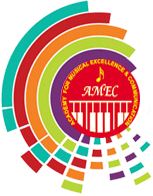The city of Kolkata has a lengthy colonial history. In fact, the city was established by the British in the mid 17th century. Since then, the city was formally regarded as major trading hub across the world, ranking next only to London. On the other hand, the city, since its glorious days of the Raj, has retained the pivotal role in the fields of art and culture throughout the subcontinent. On equating these two contrasting aspects, it will be easier to understand how western culture and music has struck profound roots across the cultural milieu of this vast metropolitan. In this context, it is relevant to mention the overwhelming popularity of piano class in Kolkata. The grand musical instrument has won over the heart and the mind of this vast city since the historic days of the Raj. What is even more significant, the city is proudly carrying that grand heritage even to this day and time!

Out of all popular musical instruments, learning the piano is severely challenging. It takes ample dedication and commitment – especially, on part of a learner – to master the skills of playing the keyboard. The instrument comes with two different sets of white and black keys. As such, there are 52 white keys and 36 black keys that make up the noble instrument. If these keys can be mastered well, the instrument will spontaneously emit every human emotion that exists.
It is interesting to note that the musical instrument is actually known as pianoforte, which has gradually been abbreviated as piano. The instrument goes smoothly with various genres of music, namely
- Jazz
- Blues
- Pop and
- Classical, etc.
The city has lost its sheen with the change of times. Presently, it is far from being a global hub of trade and commerce. In this backdrop, it is truly mystifying to consider the fact that popularity of music classes in Kolkata has become even more severe. Actually, what seems to be apparent is inhabitants of this colonial city derive their sustenance from music and music alone.
There are several premier music schools – across the city – that provide quality training to scores of dedicated learners, cutting across age groups. Some of the other popular western musical instruments among these learners include
- Violin
- Viola
- Electronic keyboard
- Synthesizer
- Mouth organ
- Drums and
- Flute, etc.
Experienced teachers with extensive training curriculum and effective teaching strategies make musical journey for the learners an event memorable for a lifetime.

